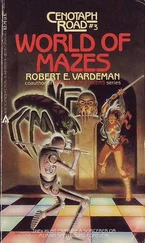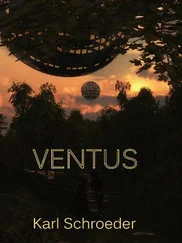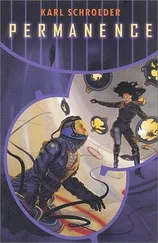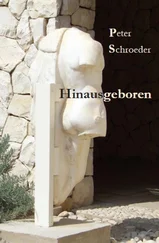Livia shrugged. "Agonistics," said Peaseblossom behind her.
"And what is agonistics?"
Her agent spoke again, as if reciting a dictionary entry. "You can compete, and you can win, but you can never win once-and-for-all."
"Exactly. It's the same principle the great democracies used back in the Modern period. You could become president but you couldn't stay president. You could build a big corporation, but you couldn't become a monopoly. But the Moderns didn't apply agonistics to everything. They couldn't because they didn't have a good model for it."
"And you do?" She had no idea where this was going.
"We do." He nodded. "The problem is that whenever you build a large, well-interconnected system, you take the chance that it'll end up in a critical state."
"And what is a ... ?"
"Imagine you're at the beach. If you've got a pile of sand and you drop grain after grain on it, one after the other, most of them will just land there and stick. But every now and then, one will cause an avalanche. Usually it's a small avalanche. But sometimes it's a mother of all avalanches that takes down the whole pile. A sandpile is a system vulnerable to critical states: states where change is poised ready to avalanche."
"Okay," said Livia impatiently. "So what?"
"Well, a couple of things. First, you can't predict the size of the next avalanche in a system at criticality unless you have absolute knowledge of every particle in the system. In practice, that's never possible. Second, human society as a whole is balanced in a whole variety of critical states. Instead of avalanches, though, humanity has wars, economic collapses, social crises ... "
"So we're at the mercy of blind forces we can't control? Tell me something I don't know," she said with a laugh.
"Oh, you're often at the mercy of blind forces," he conceded. "But you can often control them. The trick is you can redesign some systems so they don't have critical states. You can flatten the sandpile. Forest fires follow the same power law as human conflicts: any given fire is twice as likely as one twice its size. But you can reduce the likelihood of the big ones dramatically by changing the nature of the forest. A forest is an interconnected system. Break the interconnections and fires can't spread."
Two hundred years ago, Choronzon told her, a viral AI had wakened to consciousness on a sunny July day in Jamaica. Within seconds it had taken over the island's data networks and after ten minutes it had overwhelmed the global net. Inscape became its toy. As it leaped off the Earth to infect the rest of the solar system it made a personal paradise or hell for each and every man and woman on Earth, according to whims or standards that no one would ever understand.
After an hour of expansion it hit the colonies of the post-human and trans-human entities that had seceded from humanity decades before. And when it tried to pry open their datanets, it got its fingers burned.
Two hours after that it was on the run. By the end of the day it was dead — devoured by a new entity hastily cobbled together by beings like Choronzon as well as the humans of Mars and the outer planets.
This entity was the Government. Its creators gave it the motivation of stopping the network attack; but, in the full knowledge of what might happen, they motivated it to want to prevent any such attacks from succeeding in the future. Even attacks by itself.
Now Choronzon smiled, like the cat that had the canary. "When she was a child, too young for inscape implants, Maren Ellis saw her parents driven mad in the attack by the Jamaican AI. She and I talked about firebreaks a lot, before she moved to Teven. It was obvious that we needed to prevent dangerous critical states like that one from arising again. She didn't like using the word firebreak, though. She liked the word — "
" — Horizons!" said Qiingi.
"Horizons," Livia murmured. "Horizons keep the manifolds from communicating too far."
"Exactly. They were supposed to prevent any kind of condition from spreading too easily — from economic changes to cultures ... to wars." He shook his head. "I think they went too far. But this, you see, is the mathematics of agonistics — a trans-political principle for preventing disastrous wars and economic catastrophes. Or for preventing one political or religious system from taking over once and for all. Unfortunately, Maren and I differed on how to apply the principle. She believed that you had to build firebreaks at all levels — social, technological, even perceptual. Otherwise, some unforeseen new kind of critical state might be possible. From what you've told me, it was just such an unforeseen critical state that 3340 exploited to take over Teven."
"So Maren came to Teven," Livia said, "and set up the manifolds. Then, what are the Archipelago's horizons? — Let me guess: the anecliptics."
"On one level, yes. They help enforce the firebreaks by preventing any economic ripples from spreading too far. But there are countless other ways to dampen down critical states. The electoral system in the old democracies was one — it prevented tyrants from consolidating power, by forcing leaders out of office at regular intervals. The Government's another part of it. Even inscape isn't a unified system, you know, it's the emergent identity of billions of networks of differing kinds, many of which can't speak together directly. There is no perfect reproduction of any data transmitted across it, so viral attacks like the Jamaican's can't spread. Everything about how the solar system is organized militates against the development of critical states." He sighed. "Or, it did. Until he came along."
"The mad anecliptic."
"The very same. First he tried to subvert the other an-nies. He failed. But if you're right, he had a backup plan, called the Good Book. It's a network intelligence that runs on human interactions. Since it doesn't use inscape directly — or any of our data systems, in fact — it was able to propagate and connect across the whole Archipelago, slipping past all the barriers and firebreaks we spent so many centuries building into our networks. It causes an emergent behavior in its users that sniffs out and exploits critical states — as seems to have happened at Teven.
"And now the last grain of sand has fallen on the sand-pile. It's taken two hundred years, but now an avalanche of change is spreading across the Archipelago, and I don't know how big it's going to get."
Livia was practicing scales in her cabin aboard the lads' ship when she felt the room flip around her in an especially nauseating way. "What's going on?" she shouted at the ceiling.
"It's leaving!" answered Cicada.
"The annie?"
"It's headed off into the Lethe! I think they agreed to help us."
Choronzon confirmed it when he called a few minutes later. "We promised to protect your people two hundred years ago," he said as his image leaned on the metal door-jamb. "Reputations are at stake here."
"And what about us?" she asked. "Can we go home?"
"Come and go as you please," he said. "The annies won't stop you."
"Thanks." She closed the door on him. It wasn't that she was ungrateful, but Livia really would have appreciated having an anima to front for her right now. She went to sit on the bed.
If she started singing again right now she'd cry. She didn't know whether it would be from relief, or fear.
After her conversation with Choronzon, they had returned to the ship to await the anecliptics' decision. The vote Emblaze had asked to come along, and Livia had reluctantly agreed; but she could only play the gracious hostess for a short time before retreating to her room. Sophia had reluctantly agreed not to contact any other users of the Book so inscape was back on. Given the choice, though, Livia found she preferred to limit her own interactions with the ship to crippleview. Maybe Qiingi was right, and she needed a stable world in which to organize her thoughts.
Читать дальше












